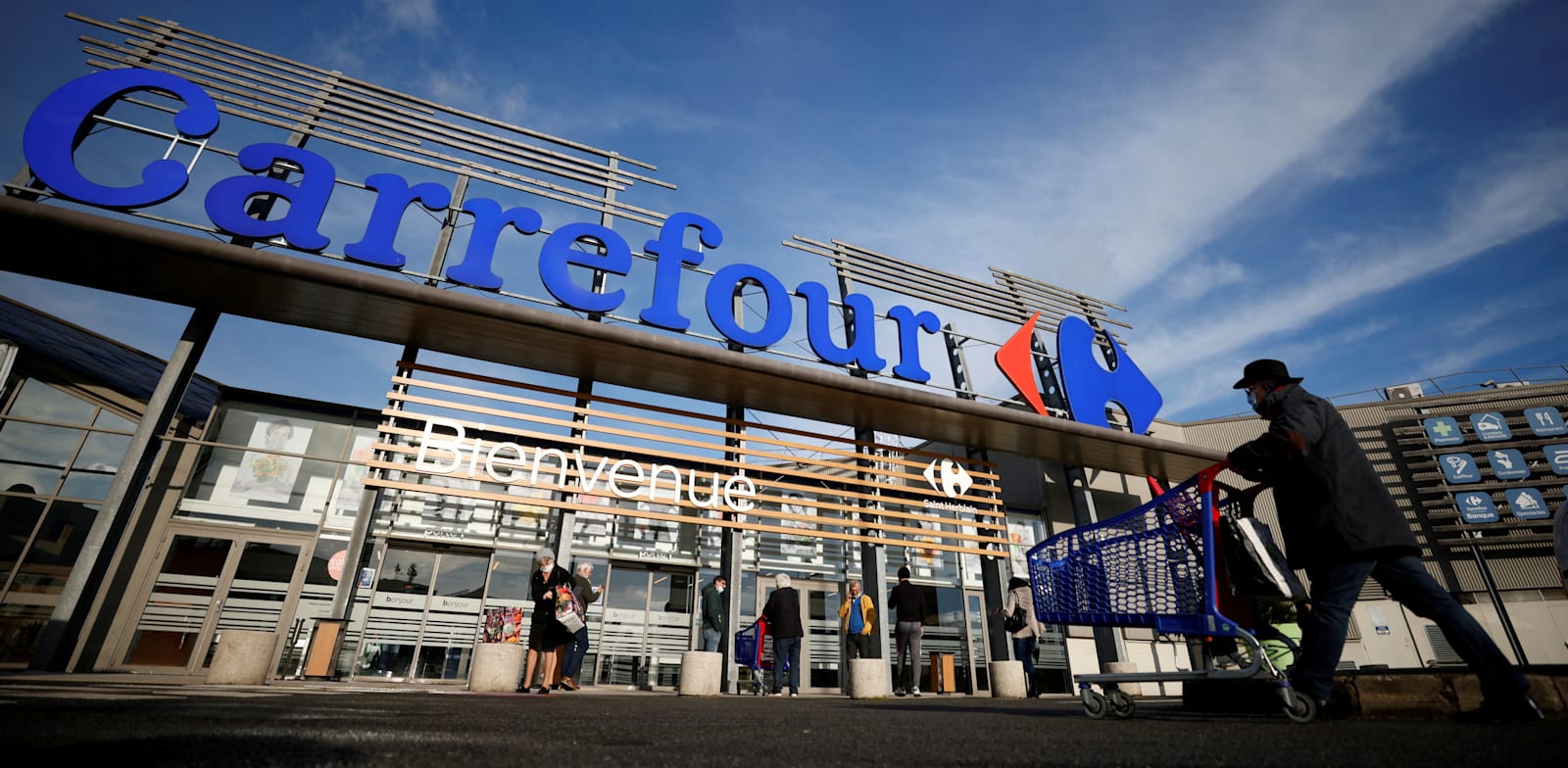The imminent entry into Israel of French retail giant Carrefour, together with its broad range of private brand products, is arousing huge interest among Israeli consumers.
Carrefour is the largest international supermarket chain to have ever entered Israel. The company has annual sales of €81 billion from nearly 14,000 branches in over 40 countries. Carrefour is also one of the world’s biggest food manufacturers with hundreds of production plants worldwide with 14,000 food and household products under the 20 brands that it owns.
Electra Consumer Products (TASE: ECP), which is bringing Carrefour to Israel, is pinning its hopes on Carrefour’s thousands of private brand products. Since June, Electra Consumer Products Mega and Yeinot Bitan supermarket chains have been selling 50 of these private brand products, which have been gradually introduced onto the shelves, and the company is now for the first time publishing data about these sales.
“The influence of the brand in the categories in which it is a player has been big,” says Carrefour Israel CEO Uri Kilstein. “Last week, for example, it was the biggest player in the coffee capsules category and surpassed the sales of Elite, with a 47% share of the total amount sold.
“Another interesting thing is that the entire category grew significantly, both in sales and profitability. We see players in the market cutting the prices of their capsules, and that makes us happy, because it demonstrates the start of a broad impact on the market.”
The case of Rami Levy
Another example that Kilstein gives is olive oil that is being sold for NIS 11.50 after winning a Ministry of Economy and Industry tender. “Its price is significantly lower compared with other olive oil brands, which are sold for NIS 30-40. In our stores it has risen to an 81% market share.
“The market reacted to the low price, and we see players like Rami Levy who cut prices to NIS 13.90 per bottle for a certain period, then raised it to NIS 17.90, because they really don’t have the ability to deal with such a low price for long. “As a result of the price cuts in the market that the Carrefour brand led, prices dropped dramatically in the entire market. Storenext reports found that before the launch of the brand, the average price of olive oil in the market was NIS 29.1, and after the launch the price fell to NIS 23, which is a 21% drop. The point that is interesting is the across-the-board effect that such moves have.”
According to Electra Consumer Prodct’s data, the sales share of Carrefour’s premium chocolate bars was 56% of the entire category, and cornflakes (a product comparable to Telma’s cornflakes) was 25%. Kilstein stresses this is not just data for a single week.
RELATED ARTICLES
Repeat purchases
Israelis are known to be loyal to brands, often regardless of price, but Kilstein is not concerned. “All the categories of our tangential products are on the rise. This is not a one-time purchase and that’s it, but repeat purchases. Nevertheless, the gaps are huge, so consumers trust these products and pick them up – which indicates a very high openness among the public, who understands and supports the fight against the cost of living and the fight against Unilever.”
Carrefour’s private label prices may be a cheap alternative, but the question is whether price levels will be sustained over time. The answer depends on a number of factors, including the import reforms and easing of bureaucracy.
One of the reasons for the price gap between Israel and France, for example, is related to the product labeling law. Carrefour prints the same table for different countries, but for Israel it is necessary to print a nutritional table and list of ingredients that is different from the rest of the world, which creates a situation where every carton and pallet that arrives in Israel is opened, the products are taken out, a sticker is stuck on the back of the product, and then it is returned to the packaging. Such requirements can increase prices by 10%-15%, and that is even before kashrut issues.
Kilstein thinks that the size of the company will compensate for this. “You have to remember that the global Carrefour chain sells almost five times more than all the sales in the entire Israeli market, and these are inconceivable amounts. Entire factories in Europe produce only for Carrefour, so the purchase prices of the brand are much cheaper than anything any other local company is able to get.”
Not only due to the price: the private brand format is successful worldwide
A survey by the US Food Industry Association’s FMI, which was recently published, claims that in the coming years we will buy more and more private label products. The study, which focused on consumer perspectives on private labels in the food industry, found that 40% of US consumers purchased more such products in supermarkets compared with the period before the Covid pandemic, and 75% of them plan to continue purchasing them.
Of course, the fact that private label prices are often cheaper plays a role, but it’s not the only one. Of the respondents, 63% said that they believe the private label provides good value, and 55% stated that they buy the private label because it is cheaper than big, well-known brands.
Published by Globes, Israel business news – en.globes.co.il – on November 21, 2022.
© Copyright of Globes Publisher Itonut (1983) Ltd., 2022.
